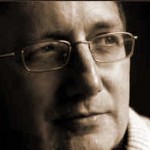In the UK, we are understandably preoccupied with the fact that so many of our elected representatives are personally corrupt in terms of filling their own pockets, and appear not to be particularly distinguished or inspiring people. I actually do not believe the oft-repeated mantra that they all went into politics with good motives.
This country has been through a terrible decade. We have launched illegal wars on others, to further the economic interests of a wealthy class, and unleashed death, mutilation, poverty and grief upon millions in foreign lands. In so doing we made ourselves hated and then disliked the fear of retribution. We have substantially circumscribed our own liberties, hard won by our ancestors, and not cared because we were seduced by a dream of limitless wealth and ease. That bubble inevitably burst and proved to be based on an economic lie. Ordinary people will be paying for bailing out the extremely wealthy, for generations.
So extreme frustration is justified. But today, on the twentieth anniversary of the massacre of Tiananmen Square, we should remember that freedom is so important it is worth dying for.
That has never been a remote concept to me. I have several friends who have died struggling for democracy in Uzbekistan in the last seven years. I also still believe that the Second World War and the fight against fascism was a noble and necessary defence. Like many of my generation, there are close relatives I never got the chance to know because they gave their lives for democracy then. My mother’s only brother, for one. My grandparents never really recovered.
Today in China numerous websites, twitter, Flickr, blogger, livejournal and much else is closed down to try to prevent Chinese people from seeing any remembrance of Tiananmen. This blog was blocked there already, as it is is Uzbekistan and several other countries.
About half as many people as died at Tiananmen, died at Andijan in Uzebkistan, also massacred as they protested for democracy, just over five years ago.
When I was in Uzbekistan, the official line I was given by Jack Straw’s FCO was that Uzbekistan was following the “South East Asian Model” whereby economic liberalisation was bringing about social shifts and the development of a strong middle class, which would eventually lead to democracy. The existence of the model was not a nonsensical argument, though in Uzbekistan there was not any actual economic liberalisation, which invalidated the argument against criticising the regime.
In China there has been economic liberalisation. But precious little sign that this has led to real democratic development or even toleration of dissidence.
In those diaries, Zhao called the massacre of peaceful demonstrators at Tiananmen Square “a tragedy to shock the world”, and clearly stated it could have been averted, had any of the party leadership sided with his view that the demonstrators should be permitted to protest or otherwise be peacefully dispersed. The violent crackdown remains to this day one of the great signs that liberalization of China by trade and engagement has been a moral failure.
The greatest sign of lack of progress over the last twenty years, is the Chinese government’s attempts even today to deny what happened at Tinananmen Square, and its Herculean efforts to prevent its population from knowing about it.
Two decades ago the air was heady, communism was tumbling everywhere, apartheid was vanishing, freedom seemed possible. We are left with a sense of ashes in the mouth. In China, the repression in Tibet and of the Muslim Uighurs – the latter a far less fashionable cause in the West – continues undiminished. But even toleration of dissent is not increasing, and there seems no end to the totalitarian desire to control what the people may know.
China may be moving towards capitalism pretty quickly. It is not even looking in the direction of political freedom.
